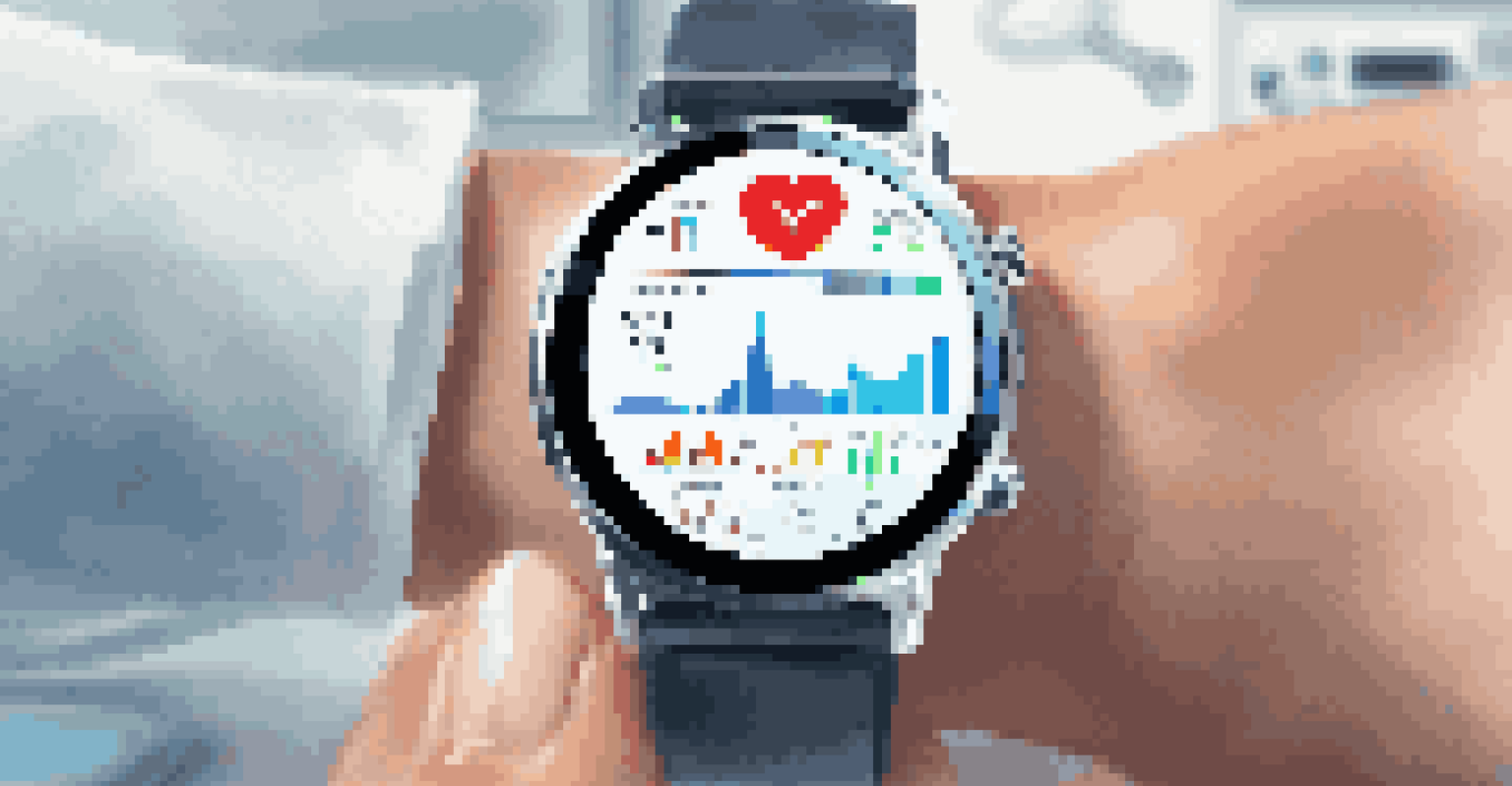AI and Predictive Analytics: Shaping Future Health Outcomes

Understanding AI and Predictive Analytics in Healthcare
Artificial Intelligence (AI) and predictive analytics are transforming the healthcare landscape. At their core, AI refers to machines that can learn and make decisions, while predictive analytics uses data to forecast future events. Together, they help healthcare providers anticipate patient needs and improve outcomes efficiently.
The greatest challenge in healthcare is not the lack of data, but rather the ability to use that data effectively to improve patient care.
For instance, hospitals can analyze historical patient data to predict which individuals are at risk for chronic diseases. By identifying trends and patterns, healthcare professionals can intervene early, potentially saving lives and reducing costs. This approach not only enhances patient care but also streamlines operational processes.
In essence, understanding these concepts is vital as they lay the groundwork for innovations that will shape the future of healthcare. As we delve deeper into this topic, we'll explore specific applications and the transformative potential they hold.
The Role of Data in Predictive Analytics
Data plays a crucial role in predictive analytics, serving as the fuel that drives insights. From electronic health records to wearable devices, the volume of health-related data is staggering. The challenge lies in harnessing this data effectively to create meaningful predictions that can guide health interventions.

Consider a scenario where a hospital collects data from patients' wearables, such as heart rate and activity levels. By analyzing this data, predictive models can identify patients at risk for heart attacks before symptoms arise. This proactive approach not only enhances patient safety but also fosters a more personalized healthcare experience.
AI Enhances Predictive Healthcare
Artificial Intelligence and predictive analytics empower healthcare providers to anticipate patient needs and improve outcomes.
Ultimately, the importance of data cannot be overstated. As healthcare providers become more adept at utilizing data, they can deliver targeted treatments and improve overall patient outcomes.
AI Algorithms: Predicting Health Outcomes
AI algorithms are at the heart of predictive analytics, enabling healthcare professionals to make data-driven decisions. These algorithms analyze vast amounts of data to identify patterns that might not be immediately obvious to human analysts. By leveraging machine learning, they continuously improve their accuracy over time.
Artificial Intelligence is transforming the way we deliver healthcare, providing insights that were once beyond our reach.
For example, a predictive model might use patient demographics, medical history, and lifestyle choices to forecast the likelihood of developing diabetes. By presenting this information to healthcare providers, they can implement preventative measures tailored to each patient's needs. This proactive strategy is a game-changer in managing chronic conditions.
Thus, AI algorithms not only enhance prediction accuracy but also empower healthcare professionals to take informed actions that can lead to better health outcomes.
Case Studies: Successful Applications of AI in Healthcare
Real-world case studies illustrate the transformative power of AI and predictive analytics in healthcare. For instance, a prominent hospital implemented an AI-driven system to predict patient readmissions. By analyzing past admission data, the system identified high-risk patients, allowing for tailored follow-up care.
Another compelling example comes from a telehealth provider using predictive analytics to evaluate patient responses to treatment. By analyzing feedback and health metrics, they can adjust treatment plans in real-time, ensuring that patients receive the most effective care possible. These success stories highlight the tangible benefits of these technologies.
Data is Key for Accurate Predictions
The effective use of diverse health-related data is crucial for creating meaningful predictions that guide health interventions.
Through these case studies, we see not only the potential for improved health outcomes but also the positive impact on operational efficiency and patient satisfaction.
Challenges in Implementing AI and Predictive Analytics
Despite the promising benefits, implementing AI and predictive analytics in healthcare is not without challenges. One major hurdle is the integration of disparate data sources, which can lead to incomplete or inaccurate predictions. Ensuring data quality and consistency is essential for reliable outcomes.
Another challenge lies in gaining trust from healthcare professionals and patients alike. Concerns about data privacy and the reliability of AI-generated predictions must be addressed. Education and transparency are key to fostering confidence in these technologies.
While obstacles exist, addressing these challenges head-on will pave the way for a more effective and widespread adoption of AI in healthcare.
The Future of AI and Predictive Analytics in Healthcare
The future of AI and predictive analytics in healthcare is bright, with advancements promising to further enhance patient care. As technology evolves, we can expect more sophisticated algorithms capable of integrating real-time data from various sources. This evolution will allow for even more accurate predictions and personalized treatments.
Moreover, the potential for AI to assist in early diagnosis is particularly exciting. Imagine a world where AI systems can analyze lab results and symptoms in minutes, flagging potential issues for doctors' attention. This could revolutionize how quickly and effectively we address health concerns.
AI Adoption Faces Challenges
Despite its benefits, the implementation of AI in healthcare encounters challenges like data integration and trust issues among users.
In summary, the future holds immense possibilities for AI and predictive analytics, and by embracing these technologies, we can significantly improve health outcomes for individuals and communities alike.
Conclusion: Embracing AI for Better Health Outcomes
As we've explored, AI and predictive analytics have the potential to reshape the healthcare landscape dramatically. By leveraging data and advanced algorithms, healthcare providers can make informed decisions that lead to better health outcomes. This shift towards a more proactive and personalized approach is essential in today’s fast-paced world.
To fully realize these benefits, it's crucial for healthcare professionals, policymakers, and technology developers to collaborate. Together, they can create a framework that prioritizes data integrity, patient privacy, and ethical AI use. Only then can we harness the full potential of these technologies.

In conclusion, embracing AI and predictive analytics is not just an option; it’s a necessity for the future of healthcare. By doing so, we pave the way for a healthier tomorrow.